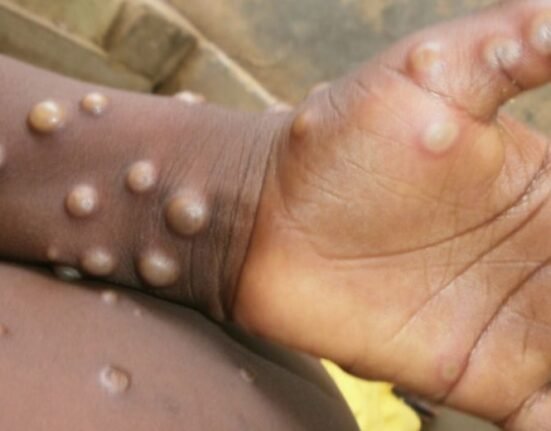HQ Team
August 20, 2024: A new strain of monkeypox virus named as MPXV clade Ib, which originated in the Democratic Republic of the Congo recently, is behind the surge of cases reported and transmitted through sexual contact.
MPXV (monkeypox virus) clade Ib is a new strain of MPXV that emerged in Congo and “is transmitting between people, presumed via sexual contact, which has been spreading in the eastern part of the country,” according to the WHO.
It was first identified in 2024, it is estimated that it emerged around September 2023. The outbreak associated with clade Ib in Congo primarily affects adults and is spreading rapidly, sustained largely, “but not exclusively, through transmission linked to sexual contact and amplified in networks associated with commercial sex and sex workers.”
A clade is a group of organisms believed to comprise all the evolutionary descendants of a common ancestor.
Clade I mpox was classically described in studies conducted by WHO in the 1980s to have a mortality rate of approximately 10%, with most deaths occurring in children. The two sub-clades of clade I monkeypox virus are clade Ia and clade Ib.
New nations affected
The new strain of the virus is “epidemiologically and phylogenetically linked to the outbreak in the eastern provinces of DRC, has been detected in four countries, neighbouring the DRC, which had not reported cases of mpox before — Burundi, Kenya, Rwanda and Uganda.
Last month more than 100 laboratory-confirmed cases of clade 1b have been reported in the four countries. Experts believe the true number of cases to be higher as a large proportion of clinically compatible cases have not been tested.
During this year cases of mpox linked to MPXV clade Ia have been reported in the Central African Republic and the Republic of Congo, and cases related to MPXV clade II have been reported in Cameroon, Côte d’Ivoire, Liberia, Nigeria and South Africa.
Currently, there is insufficient information available to identify the new strain due to a lack of data and the low death count being recorded, according to the WHO.
“The emergence of a new clade of mpox, its rapid spread in eastern DRC, and the reporting of cases in several neighbouring countries are very worrying,” said Dr Tedros Adhanom Ghebreyesus, WHO’s Director-General.
International response
“On top of outbreaks of other mpox clades in DRC and other countries in Africa, it’s clear that a coordinated international response is needed to stop these outbreaks and save lives.”
On August 14 the WHO declared the mpox outbreak as a public health emergency of international concern under the International Health Regulations (2005).
A Public Health Emergency of International Concern is an “extraordinary event, which constitutes a public health risk to other States through the international spread of disease, and potentially requires a coordinated international response”.
The announcement came on the advice of an IHR Emergency Committee of independent experts, 16 members and two experts, who met on the same day to review data presented by experts from WHO and affected countries.
The latest emergency is the second in two years relating to mpox. Caused by an orthopoxvirus, mpox was first detected in humans in 1970, in Congo. The disease is considered endemic to countries in Central and West Africa.
Significant rise
The first public health emergency was issued in July 2022, as the spread rapidly through sexual networks across a range of countries where the virus had not been seen before. That emergency was declared over in May 2023 after there had been a sustained decline in global cases.
Last year, reported cases increased significantly, and the number of cases reported so far this year has exceeded last year’s total, with more than 15,600 cases and 537 deaths.
The WHO rated the risk as “high” for eastern Congo and neighbouring countries, “high” for areas of the Congo where mpox is known to be endemic and “moderate” for Nigeria and countries of West, Central and East Africa where mpox is endemic.
Burundi reported 100 confirmed cases of mpox associated with clade Ib since July 2024, identified in multiple districts and 28% of cases were amongst children less than five years of age.
The global health agency has assigned a “moderate” risk for other countries in Africa and around the world.
Equitable vaccine access
The “WHO has developed a regional response plan, requiring an initial $15 million to support surveillance, preparedness and response activities,” Dr Tredos said.
“To fund that response we have released $1.45 million from the WHO Contingency Fund for Emergencies, and we plan to release more in the coming days. We are also appealing to donors to fund the rest of the response plan,” he said.
International cooperation required enhanced coordination, for the facilitation of equitable access to vaccines, therapeutics, and diagnostics, and the mobilization of financial resources, according to the WHO.








